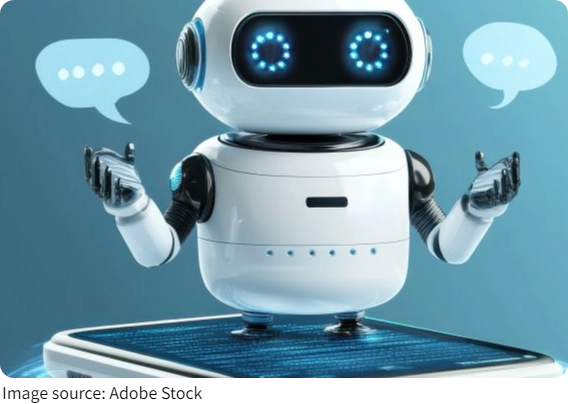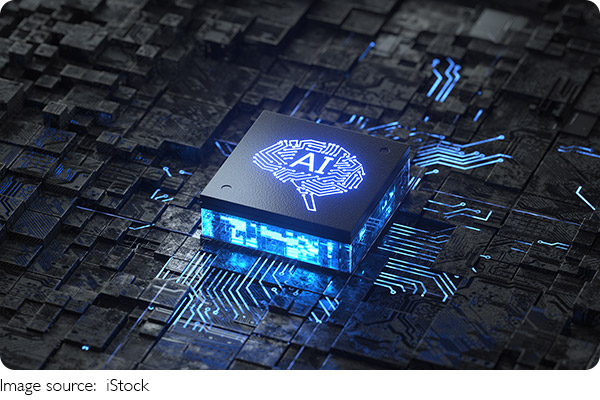AI: What & Why Matters?

In the fast-evolving world of technology, Artificial Intelligence (AI) stands at the forefront of transformation.
From voice assistants like Siri to self-driving cars, AI has rapidly integrated into various aspects of everyday life.
But what exactly is AI, and why should it matter to you? This article will provide an in-depth look at the core concepts of AI and explore its growing impact on our lives!
Decoding Artificial Intelligence
Artificial Intelligence is not just a buzzword or science fiction fantasy—it’s the simulation of human intelligence processes by machines. These processes include learning, reasoning, problem-solving, perception, and language understanding. At its core, AI is about creating systems that can perform tasks that would normally require human intelligence.
AI can be classified into two primary categories:
Narrow AI (Weak AI): This type is designed to perform a specific task, like facial recognition or internet searches. While impressive, it operates within predefined limits and lacks general understanding.
General AI (Strong AI): This is the next frontier—machines that can perform any intellectual task that a human can do. However, general AI remains largely theoretical at this point.

Key Technologies Behind AI
The development of AI relies on several cutting-edge technologies that enable machines to think, learn, and adapt:
1. Machine Learning (ML): A subset of AI, machine learning allows systems to automatically learn and improve from experience without being explicitly programmed. In this process, algorithms identify patterns in data and use them to make decisions or predictions. ML is used in applications ranging from predictive analytics to recommendation systems.
2. Deep Learning: A more advanced form of ML, deep learning mimics the human brain's neural networks. This allows AI to understand complex patterns and data structures, making it highly effective in image and speech recognition. Deep learning powers technologies like self-driving cars and facial recognition systems.
3. Natural Language Processing (NLP): This technology enables machines to understand and generate human language. NLP powers chatbots, virtual assistants, and language translation apps, making it a key player in AI-driven communication tools.
How AI is Reshaping Industries
The reach of AI stretches far beyond Silicon Valley, profoundly impacting industries worldwide. Here’s a closer look at how AI is making waves across different sectors:
Healthcare: AI-powered diagnostics systems help doctors detect diseases earlier and more accurately. Algorithms are capable of analyzing medical images, such as X-rays, to identify signs of conditions like cancer or neurological disorders. Additionally, AI chatbots are improving patient engagement by offering personalized care and reminders.
Finance: Banks and financial institutions use AI for everything from fraud detection to automating customer service. AI algorithms analyze transaction data to spot fraudulent activities and prevent financial crimes. Moreover, Robo-advisors, which provide automated investment advice, are revolutionizing personal finance management.
Retail: AI is transforming the retail sector by enhancing customer experience through personalized recommendations. Amazon’s recommendation system, for example, uses customer data and browsing history to suggest products that might interest you. AI also optimizes supply chains and inventory management, improving efficiency.
Transportation: Autonomous vehicles, powered by AI, promise to revolutionize the way we travel. Self-driving cars use deep learning algorithms to interpret sensory data and make decisions in real time, aiming to reduce accidents and improve traffic flow.
Manufacturing: AI-driven robots and automation systems are streamlining production lines. Predictive maintenance, powered by AI, helps reduce downtime by anticipating machinery failures before they occur, ensuring smooth operations and cost savings.

Ethical Considerations and Challenges
While AI offers numerous benefits, it’s not without its challenges. One of the key concerns surrounding AI is the potential for bias. AI systems are trained on data, and if that data is biased, the AI can replicate and even amplify those biases. This is a significant issue in areas like hiring, law enforcement, and lending.
Another ethical consideration is job displacement. As AI automates tasks traditionally performed by humans, there are concerns about job losses, particularly in industries like manufacturing and customer service. However, experts argue that AI will also create new job opportunities, especially in fields like data science and AI development.
Why AI Matters for the Future
AI is not just a fleeting trend, it’s a technology that will shape the future of work, life, and society. Its ability to process vast amounts of data at lightning speed gives it the potential to solve some of humanity's most pressing problems—from climate change to disease prevention.
AI is also enabling smart cities. In these cities, AI algorithms help optimize energy usage, reduce traffic congestion, and improve waste management. This technology will be essential in building more sustainable urban environments as the world’s population continues to grow.
Moreover, AI’s impact extends to global economic growth. According to reports, AI is expected to contribute trillions of dollars to the global economy by 2030, driving innovation and productivity across all sectors.
Artificial Intelligence is no longer just a concept of the future—it’s here and now, deeply woven into the fabric of our daily lives. From healthcare to finance, retail to transportation, its influence is undeniable. As we navigate this AI-driven world, understanding its capabilities, benefits, and ethical implications will be key to harnessing its power responsibly. The AI revolution has only just begun, and the next few years will undoubtedly bring even more groundbreaking developments. Keep your eyes open—AI is changing the world, and its potential is limitless!
The three big ethical concerns with artificial intelligence
Video by MaRS Discovery District
-
 Bernese Oberland's MagicWant to know how to experience Switzerland's most stunning landscapes, hidden gems, and charming villages?
Bernese Oberland's MagicWant to know how to experience Switzerland's most stunning landscapes, hidden gems, and charming villages? -
 Explore Texas Hill CountryLooking for your next unforgettable getaway?
Explore Texas Hill CountryLooking for your next unforgettable getaway? -
 Explore Loch Ard GorgeCurious where sea cliffs, shipwrecks, and golden light meet? Lykkers, Loch Ard Gorge awaits.
Explore Loch Ard GorgeCurious where sea cliffs, shipwrecks, and golden light meet? Lykkers, Loch Ard Gorge awaits.